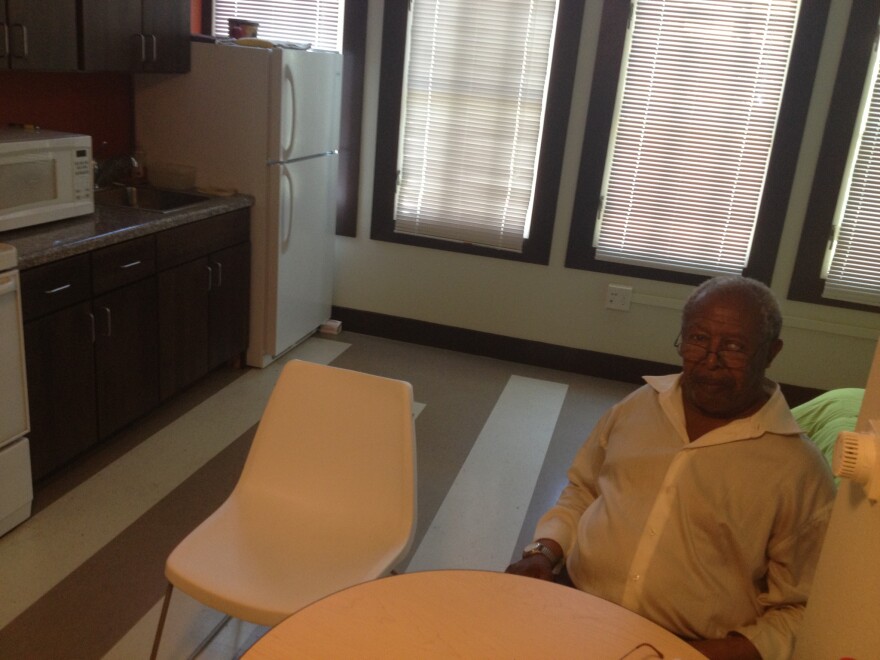California has the largest concentration of homeless veterans in the nation, and in San Francisco, it’s likely that more than 700 homeless vets will sleep on the street or in shelters this Veterans Day.
According to Bevan Dufty, director of San Francisco’s Housing, Opportunity, Partnerships and Engagement (HOPE) program, housing homeless veterans is a high priority for the city. And the number of homeless veterans has decreased since last year, thanks in part to the opening of a permanent supportive housing facility called Veterans Commons.
Veterans Commons looks like a regular condo building, but its 75 residents are senior veterans who all struggled with chronic homelessness. The definition of chronically homeless is an individual with a disabling condition who has been homeless for a year or more, or has had at least four episodes of homelessness in the last three years.
For Jesse Breedwolf, chronic homelessness has been reality for more like 50 years. He’s 74, and says that he’s finally found peace in his old age. And the way Veterans Commons was built, he should be able to live there for the rest of his life. It was designed with handicapped accessible features like elevators and roll-in showers.
“It's beautiful for me,” Breedwolf says. “I can just step out of bed and go right in my bathroom, I enjoy that.”
“Long-term homelessness really impacts a person's health and well-being, so veterans those that are chronically homeless may be 65 chronologically years old but are in their eighties in health profile,” says Leon Winston, housing director and chief operating officer of Swords to Plowshares, the veteran service organization behind Veterans Commons.
It cost more than $29 million to get the building, on the outskirts of the Mission district, ready for veterans. It was owned by the city and had served various purposes over the years, from a juvenile hall to a temporary homeless shelter.
Today, Swords to Plowshares, Veterans Affairs and the San Francisco Department of Public Health offer on-site support services.
According to the National Alliance to End Homelessness, an organization that analyzes homelessness policies, chronically homeless people overuse services like emergency shelters, emergency rooms, hospitals, and police departments. Permanent supportive housing reduces the burden on those systems, and by extension saves taxpayers thousands of dollars a year.
“There have been studies that show the cost of keeping chronically homeless people homeless is actually more expensive than housing them,” Winston says.
Veterans Commons is the first permanent supportive housing building of its kind in San Francisco, and these groups hope to replicate the model many times over.






